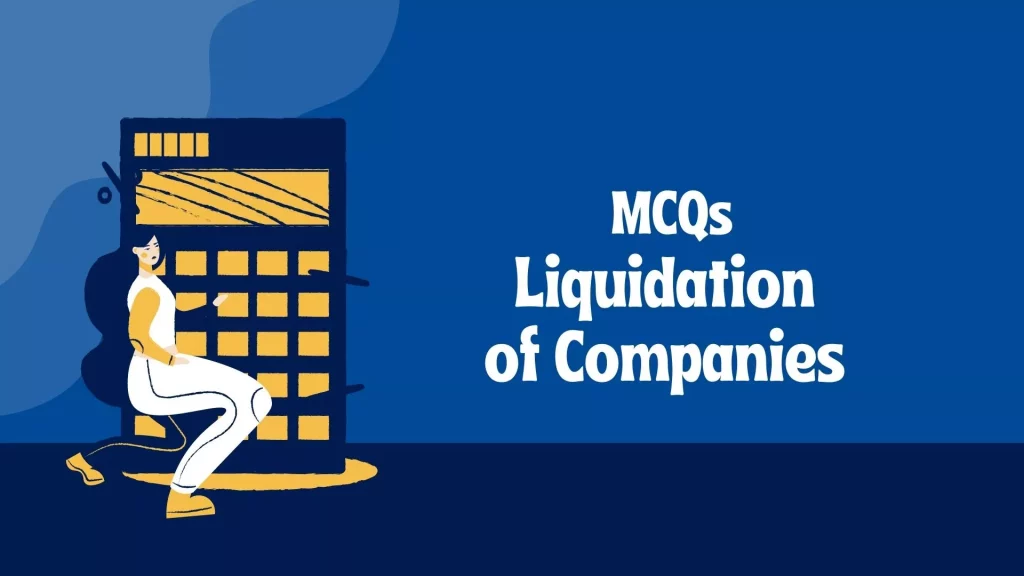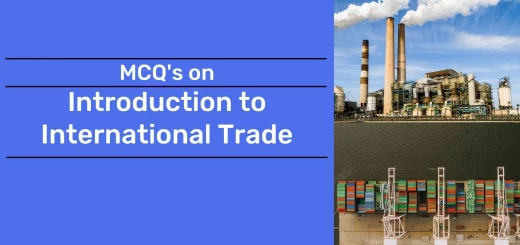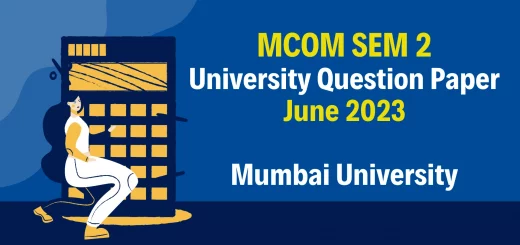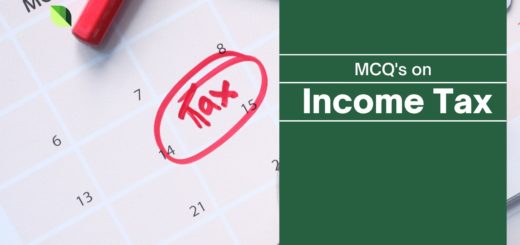Liquidation of Companies MCQ’s | Financial Accounting (Free Resource)
Liquidation of Companies MCQ
1. A company can be liquidated in any of following ways under the Companies Act, 2013 after 1-4-2017
(a) Compulsory winding-up by the Tribunal
(b) Voluntary winding-up by the Members or Creditors
(c) Winding-up under the supervision of the Court
(d) All of the above
2. List H shows Account.
(a) Deficiency or Surplus
(b) Preferential Creditors
(c) Fixed Assets Account
(d) None of the above
3. When a company is wound-up, all persons who ceased to be shareholders within a year before the winding-up are placed in the
(a) ‘A’ List of Contributories
(b) ‘B’ List of Contributories
(c) ‘C’ List of Contributories
(d) ‘D’ List of Contributories
4. If default is made in delivering the annual return to the Registrar, the company is likely to face
(a) compulsory winding up by the tribunal
(b) voluntary winding up by members
(c) voluntarily winding up by creditors
(d) none of the above
5. Following is treated as over-riding preferential creditor
(a) Retirement benefits of employees
(b) Retirement benefits to workers
(c) Salary due to employees exceeding Rs 20,000
(d) Remuneration to investigator
6. Remuneration to investigator upon investigation of the affairs of company is treated as
(a) Secured creditor
(b) Over-riding preferential creditor
(c) Preferential creditor
(d) Unsecured creditor
7. Amount of Govt. dues that arose within 12 months before the date of winding up is treated as
(a) Secured creditor
(b) Over-riding preferential creditor
(c) Preferential creditor
(d) Unsecured creditor
8. Amount of Retirement benefits of employees exceeding Rs 20,000 per employee is treated as
(a) Secured creditor
(b) Over-riding preferential creditor
(c) Preferential creditor
(d) Unsecured creditor
9. Preference dividend in arrears on the date of winding up is
(a) treated as Secured creditor
(b) treated as Over-riding preferential creditor
(c) treated as Preferential creditor
(d) added to Preference Share Capital
10. Amount of calls in advance is treated as
(a) Secured creditor
(b) Asset not specifically pledged
(c) Preferential creditor
(d) Unsecured creditor
| Answers: 1)Compulsory winding-up by the Tribunal 2)Deficiency or Surplus 3)’B’ List of Contributories 4)compulsory winding up by the tribunal 5)Retirement benefits to workers 6)Preferential creditor 7)Preferential creditor 8)Preferential creditor 9)added to Preference Share Capital 10)Unsecured creditor |

11. Interest on debentures and unsecured loan is payable upto the date of actual payment
(a) if the company is solvent
(b) if the company is insolvent
(c) whether the company is solvent or insolvent
(d) none of the above
12. Accrued holiday remuneration becoming payable to any workman is treated as
(a) Secured creditor
(b) Over-riding preferential creditor
(c) Preferential creditor
(d) Unsecured creditor
13. Liability for compensation under Workmen’s Compensation Act is treated as
(a) Secured creditor
(b) Over-riding preferential creditor
(c) Preferential creditor
(d) Unsecured creditor
14. If the remuneration to liquidator is payable as a percentage of collection
(a) include opening cash and bank balance
(b) exclude closing cash and bank balance
(c) exclude opening cash and bank balance
(d) exclude both opening and closing cash and bank balance
15. If the remuneration to liquidator is payable on distribution,
(a) exclude distribution to preferential and unsecured creditors and contributories
(b) include distribution to preferential and unsecured creditors but exclude distribution to contributories
(c) exclude distribution to preferential creditors but include distribution to unsecured creditorsand contributories
(d) include distribution to preferential and unsecured creditors and contributories
16.All contributions payable during the 12 months next under the Employees State Insurance Act, 1948
(a) are treated as overriding preferential creditors
(b) are treated as preferential creditors unless the company is being wound up voluntarily for the purpose of reconstruction
(c) are treated as unsecured creditors
(d) are treated as preferential creditors unless the company is being wound up compulsorily bythe Court
17. A contributory is a
(a) Unsecured creditor
(b) Preferential creditor
(c) Shareholder
(d) Debentureholder
18. List ‘A’ in statement of affairs gives the list of
(a) Assets specifically pledged
(b) Assets not specifically pledged
(c) Preferential creditors
(d) Unsecured creditors
19. List ‘E’ in statement of affairs gives the list of
(a) Preferential creditors
(b) Debentureholders
(c) Unsecured creditors
(d) Secured creditors
20. Secured creditors are shown in the statement of affairs under :
(a) List A
(b) List B
(c) List C
(d) List D
| Answers: 11)if the company is solvent 12)Over-riding preferential creditor 13)Over-riding preferential creditor 14)exclude opening cash and bank balance 15)include distribution to preferential and unsecured creditors and contributories 16)are treated as preferential creditors unless the company is being wound up voluntarily for thepurpose of reconstruction 17)Shareholder 18)Assets not specifically pledged 19)Unsecured creditors 20)List B |
21. Preferential creditors are shown in the statement of affairs under :
(a) List D
(b) List B
(c) List C
(d) List A
22. The proceeds of assets not specifically pledged and the surplus of the assets specifically pledged is first available for :
(a) Preferential creditors
(b) Unsecured creditors
(c) Legal charges, liquidator’s remuneration and liquidation expenses
(d) Preference shareholders
23. Any sum due to an employee out of provident fund is an example of :
(a) Unsecured creditor
(b) Preferential creditor
(c) Secured creditor
(d) Partly secured creditor
24. Bills were discounted to the extent of Rs 10,000 of which bills of Rs 4,000 are likely to be dishonoured. Hence, the liability to rank in respect of these bills will be
(a) Rs 10,000
(b) Rs 4,000
(c) Rs 6,000
(d) Rs 14,000
25. When the sale proceeds of pledged security is not sufficient to pay off secured creditors fully, the balance due to them should be added to
(a) Unsecured creditors
(b) Preferential creditors
(c) Equity share capital
(d) Preference share capital
26. When the liquidated company has adequate cash to pay off all liabilities, the interest on liabilities should be paid :
(a) upto date of commencement of insolvency proceedings
(b) upto the date of actual payment of liabilities
(c) upto the date of payment to shareholders
(d) none of these
| Answer: 21)List C 22)Legal charges, liquidator’s remuneration and liquidation expenses 23)Preferential creditor 24)Rs 4,000 25)Unsecured creditors 26)upto the date of actual payment of liabilities |
Video lectures on Liquidation of Companies MCQ’s.


